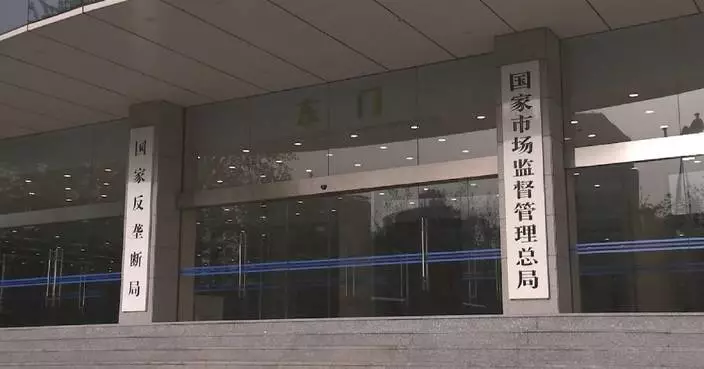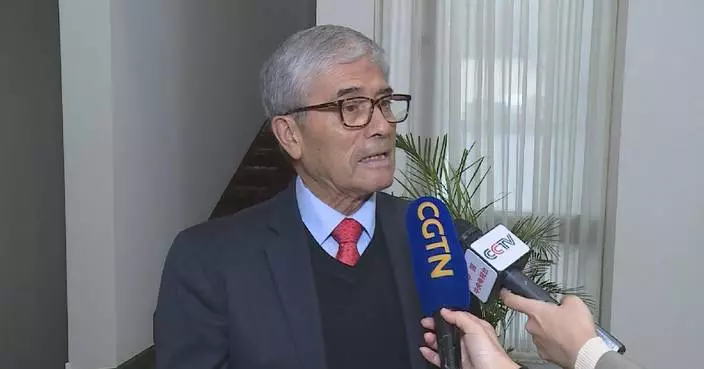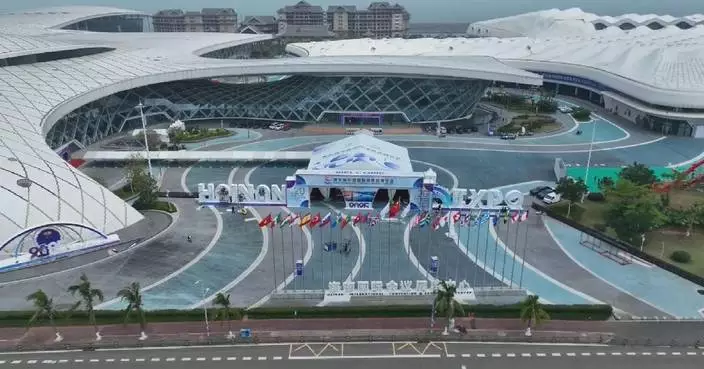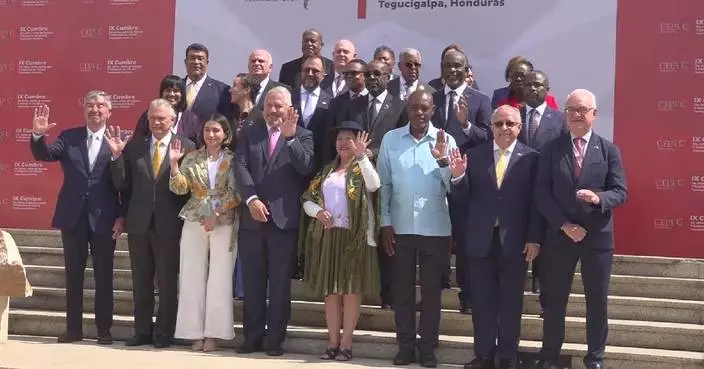The Urumqi Grand Bazaar, the largest marketplace in northwest China's Xinjiang Uyghur Autonomous Region, has become a one-stop destination for sampling the region's best cuisine, drawing large crowds during the recent holiday with its mix of traditional flavors and bold innovations.
During the three-day Qingming Festival holiday, the bustling bazaar in downtown Urumqi became a top destination for both locals and tourists embarking on a culinary journey, attracting nearly 90,000 visitors daily, a 15 percent surge compared to last year.
As dusk slowly settled over the city each night during the holiday, eager diners flocked to the Grand Bazaar's food street for a hearty meal as the aroma of a dazzling array of local delicacies filled the air.
Barbecue often takes center stage in Xinjiang's culinary culture, and the bazaar elevates this tradition to new heights. Beyond the usual lamb skewers and naan bread, vendors roast everything from ostrich eggs to juicy watermelon pieces.
These vendors skillfully roast ostrich, goose, duck, chicken, and pigeon eggs over charcoal flames. Each egg is carefully turned to ensure even cooking, with creative twists such as adding honey or saffron to the yolk.
Innovations extend beyond that. Even staple dishes like baked buns have been reinvented. In addition to the traditional square-shaped lamb-stuffed buns, visitors can now find a new version, the "lamb rib bun," which encases an entire rib inside the dough for maximum meaty satisfaction.
In Xinjiang, a whole roasted lamb is a must when welcoming distinguished guests. At the bazaar's rear courtyard, a large clay oven nearly two meters high and wide can roast up to 10 lambs at a time. The meat is marinated, hung, and slowly roasted for several hours. During holidays, some vendors sell over a dozen whole lambs a day.
There are also Uyghur-style wontons known as "ququ'er", barely larger than a thumbnail. These small dumplings are filled with seasonal wild vegetables, aligning with the springtime tradition of eating foods that reflect nature's renewal.
After sampling the fare, visitors can indulge in one of the bazaar's trendiest drinks -- sand-brewed coffee. Baristas swirl copper pots of coffee concentrate through burning sand until the brew bubbles to perfection. The coffee is served in edible "naan cups," topped with rose petals for an aromatic touch.
The vendors are so confident in the quality of their offerings that the bazaar offers a full refund for unsatisfied customers.

Xinjiang's grand bazaar draws foodies in droves with authentic Uyghur flavors
A conference on sustainable development cooperation among Shanghai Cooperation Organization (SCO) member states concluded with the signing of 18 key projects worth a total of 4.795 billion yuan (about 655.5 million U.S. dollars) on Thursday in north China's Tianjin Municipality.
The projects, covering new energy, new materials, infrastructure, and automotive supply chains, are expected to boost practical cooperation among member states.
Nearly 400 guests, including officials and enterprises from SCO member states, attended the opening session. The conference is part of a series of activities ahead of the upcoming SCO summit in China this autumn.
The agreements involve eight countries, including the UAE, Egypt, and Uzbekistan. Notable projects include a 200-megawatt transformer substation in Egypt's Suez Canal Economic Zone and a collaboration between the UAE and Tianjin Municipality to help local enterprises expand overseas.
Ahmed El Homosani, CEO of the Sczone Utilities, highlighted the importance of the power substation project in attracting quality investments. "What we are going to sign is a framework agreement regarding building a new substation, 200 mega of electricity power. It will attract more and better investments," he said.
Meanwhile, Avinash Jagetiya, CEO of UAE's Sun Management Consulting, emphasized the significance of the cooperation agreement with Tianjin. "Yes, I'm certainly looking forward to this conference and that is the reason I'm here. And in this conference also we are going to sign an MOU (Memorandum of understanding) with Tianjing government. And this project is a step forward in serving the Tianjin enterprises and expanding their footprints and overseas market," he said. The conference also featured specialized sessions on energy, infrastructure, and mining cooperation. Energy cooperation was a focal point, with representatives from Kyrgyzstan noting increased interest from Chinese investors in energy projects.
"At present, a large number of Chinese investors are directly engaged with Kyrgyzstan's State Investment Agency for energy projects, including hydropower, solar and wind power plants," said Maksatbek Botoyarov, chief specialist of the Department of Investment Attraction and Regional Development of Kyrgyzstan.
Participants, including representatives from traditional energy firm LONGi, expressed commitments to increasing investments in the new energy sector and exploring green transformation pathways with SCO members.
"Over the years, we have developed green electricity and green hydrogen products and technical solutions to help these SCO countries achieve their sustainable development and energy transition. We are also actively communicating with the Kazakh government to formulate specific plans and programs for implementation," said Shi Shufeng, marketing director of LONGi's Central and East African Market.
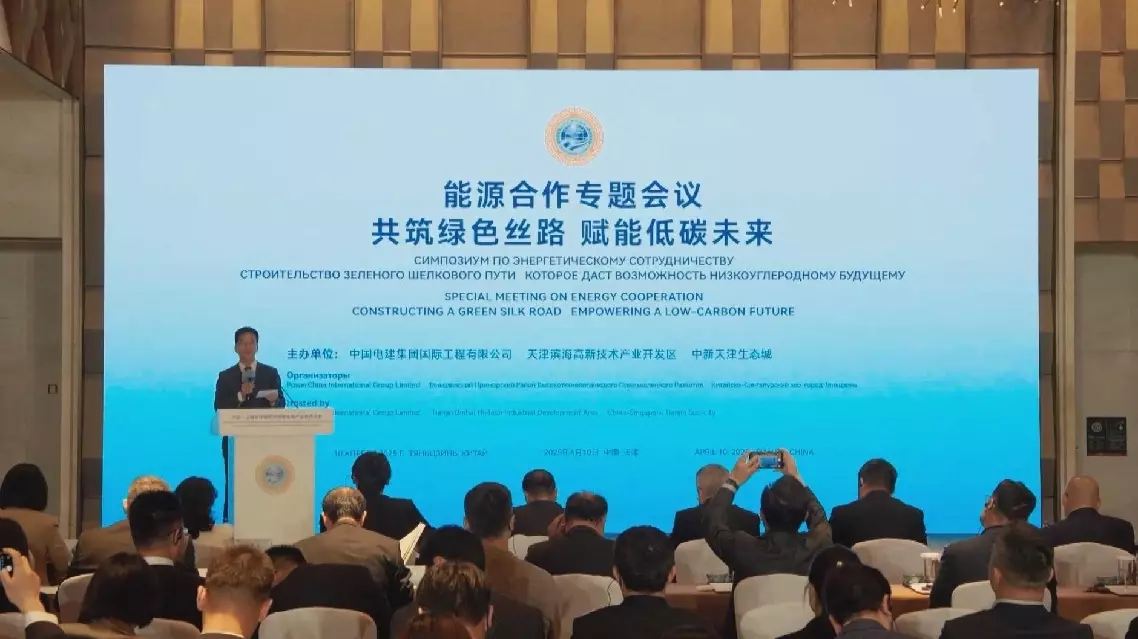
SCO sustainable development conference secures 18 projects involving nearly 4.8 bln yuan





